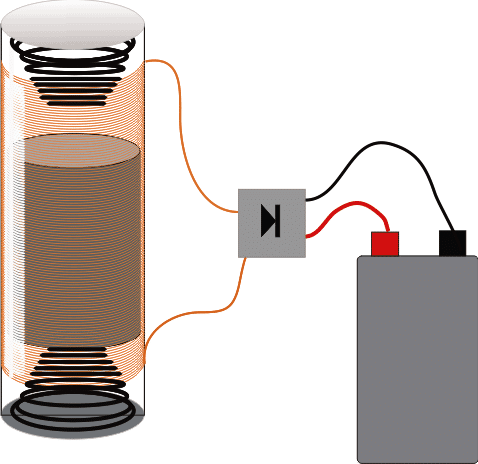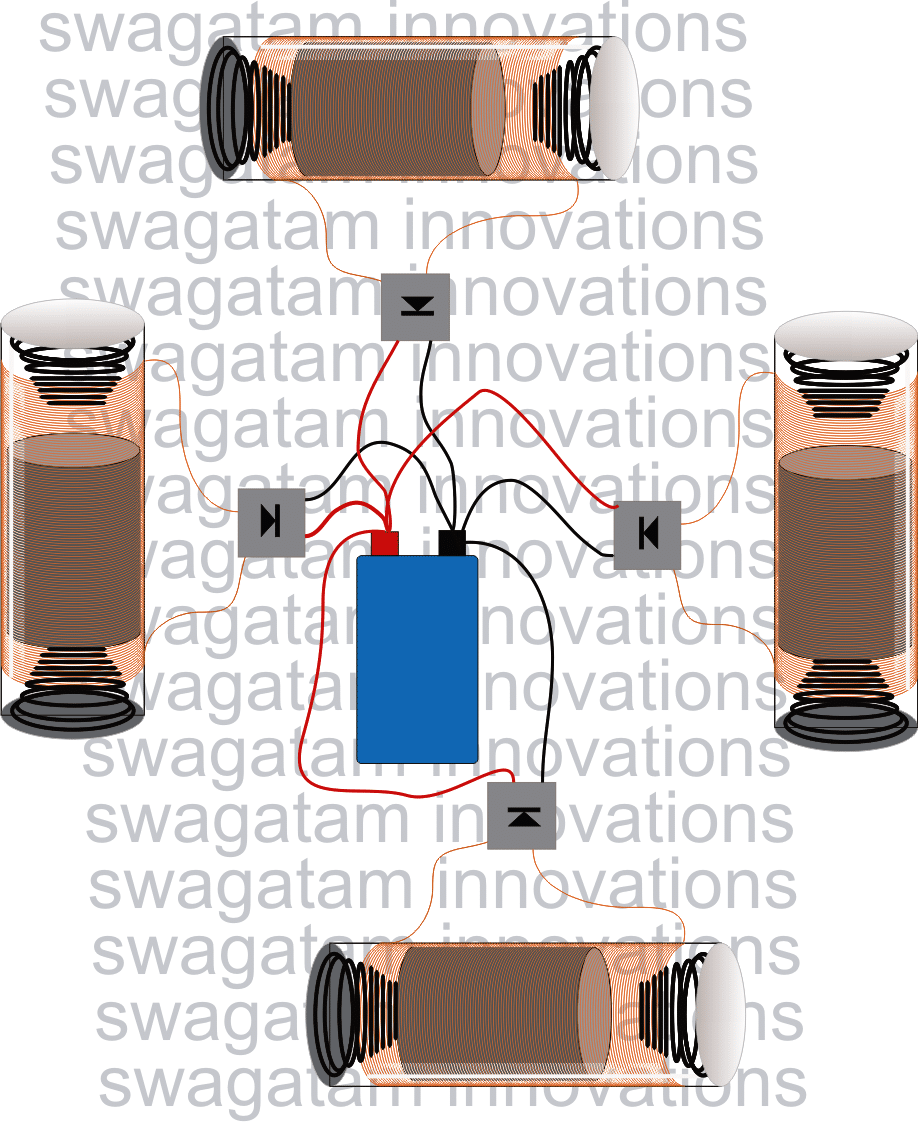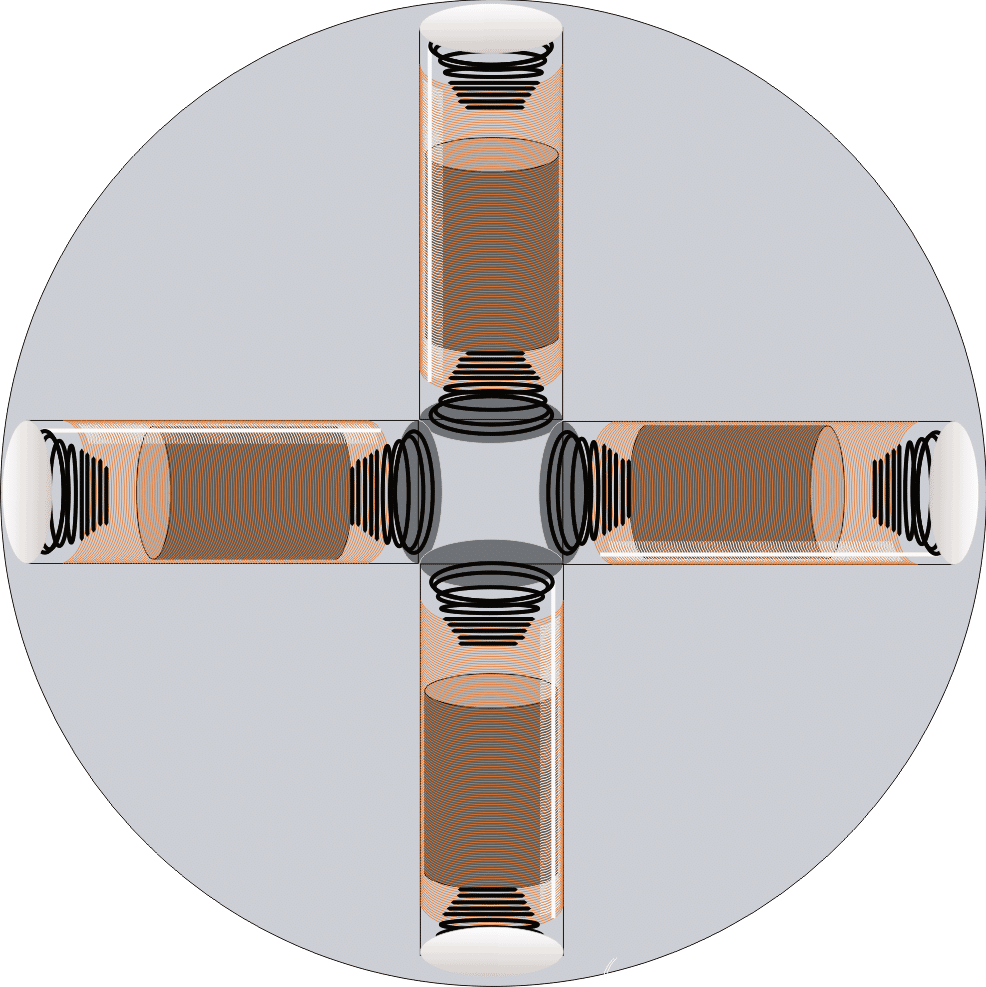The explained football electricity generator circuit was developed by me in response to the request sent by one of the readers Mr.Bright.
Though I am not sure if the explained concept would actually give the intended results, it's worth trying as it's quite easy to understand and build.
Designing the Generator
There were three things that I had to consider while designing the circuit, firstly the circuit should be easy and cheap to build, second, should be reasonably efficient and thirdly it should be well aligned such that it does not disturb the ball dynamics while playing.
We are all familiar with Faraday's law of electromagnetism which says that when a when a conductor is subjected to a varying magnetic field, a flow of current is initiated in te conductor.
The above principle has been exploited here for generating electricity inside a football where the process starts when the ball is kicked or while the ball is rolling on the ground.
How the Coils and Magnets are Assembled inside the Ball
As shown in the figure, a magnet and a copper wire coil arrangement has been neatly assembled inside a polished plastic tube.


The tube encloses a cylindrical magnet having a north (N) and south (S) pole over its ends. The magnet diameter and the internal tube diameter are chosen such that the magnet just slides inside the tube freely without wobbling sideways much.
The tube top and bottom portions are sealed with lids having a low tension spring fixed inward for facilitating a bouncy effect to the jumping magnet.
Four such assemblies are positioned perpendicular to each other inside the football for keeping a uniform alignment to the ball and its dynamics.
The coil wire terminals from each assembly is connected to individual bridge rectifiers and the outputs from all the bridge rectifiers are appropriately connected to a correctly rated battery, either a Li-Ion or Ni-Cd.
The whole assembly along with the battery is then neatly framed and securely fixed inside a football.

What Happens when the Football is Kicked
Now if the ball is kicked, a strong vibrational motion is delivered to all the magnets inside the tubes which start oscillating to and fro, giving rise to the Faraday's effect, inducing electricity across all the coils.
The above process would continue even while the ball roles over the ground.
The generated voltage across all theses coils is finally applied to the battery which hopefully starst getting charged as per the expectations.
The battery output is terminated out from the ball through some sort of plug-in arrangement made over the ball itself which cleanly merges with the ball diametric curve without distorting it's shape.
A small LED lamp would then light up using the charge from the football battery, once it gets charged after a good play session.